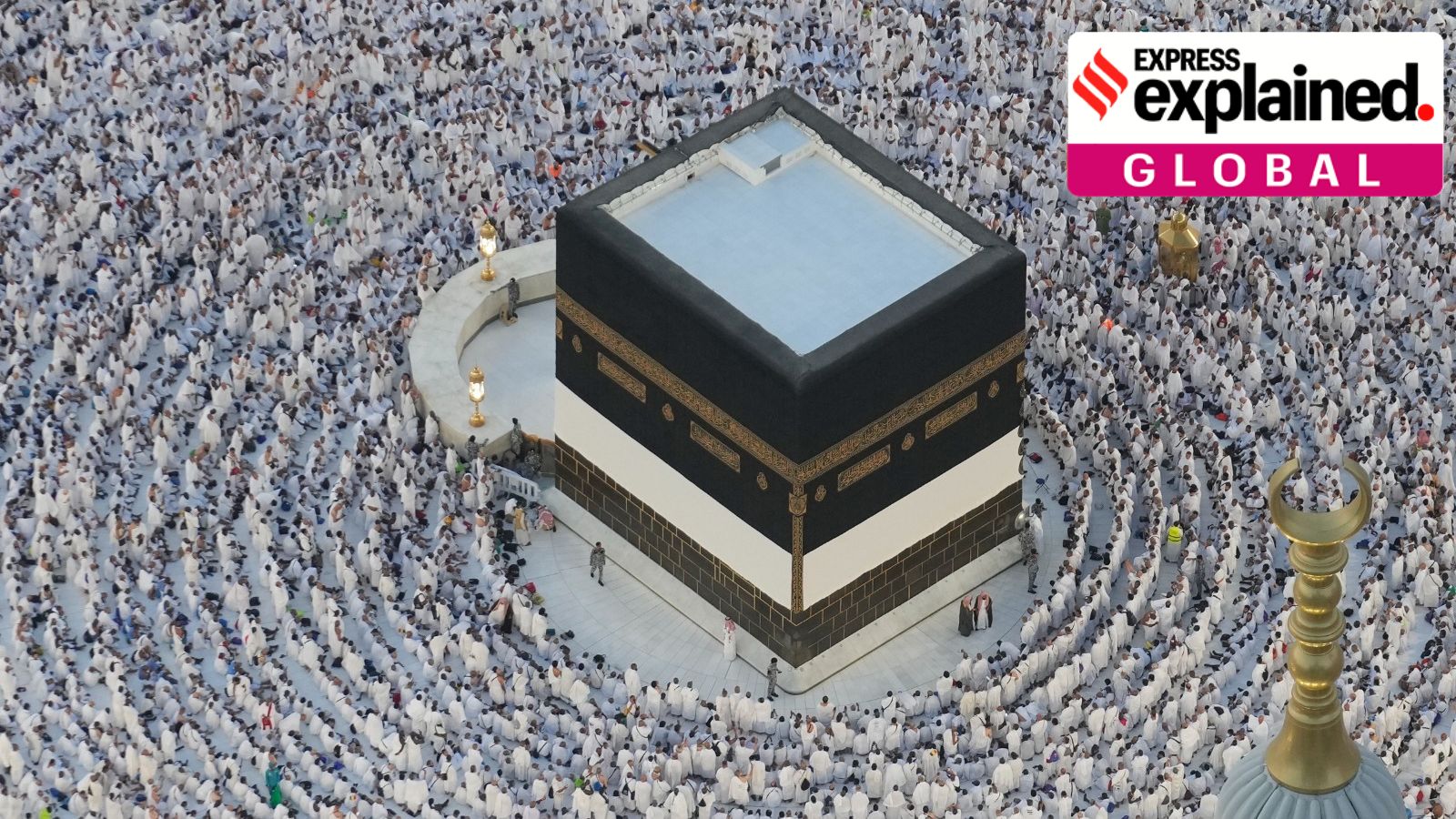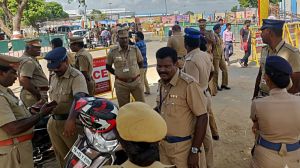Hundreds of Hajj pilgrims died in the oppressive heat of Saudi Arabia this year, with temperatures in Mecca reaching above 51 degree Celsius last week.
Hajj (literally “to set out for a place”) is one of the five pillars of Islam — every Muslim is supposed to undertake the pilgrimage at least once in their lifetime. According to the Quran, Hajj can be traced back to the time of Prophet Ibrahim (Abraham in the Judeo-Christian scriptures), roughly 4000 years ago.

The pilgrimage involves a series of rituals that take place in and around Mecca, over a period of five or six days. These include multiple circumambulations of the Kaaba, ritual traverses between the hills of Safa and Marwa, scaling and praying at Mount Arafat, where Prophet Muhammad delivered his final sermon, and the symbolic stoning of the devil in the valley of Mina.
The pilgrimage takes place between 8th and the 13th of the Dhu al-Hijjah, the last month of the Islamic calendar. Since the lunar year of the Islamic calendar is 11 days shorter than the solar Gregorian year, each Gregorian year, Hajj comes 10 or 11 days earlier than the previous year. This year, the Hajj pilgrimage took place from June 14 to 19.
What are Hajj quotas?
The Ministry of Hajj and Umrah of the Kingdom of Saudi Arabia is in charge of facilitating the pilgrimage. Over the years, as the number of pilgrims has gone up, Saudi authorities have spent billions to improve infrastructure. Nonetheless, accommodating so many pilgrims in one location for a brief period of time poses myriad logistical challenges.
This is why, each year, the Saudi government allots country-wise quotas which determine the total number of pilgrims who can make the journey from a particular country. This is, by and large, done based on the number of Muslims in a particular country. Countries also lobby diplomatically for a larger quota.
This year, Saudi Arabia allowed 1.75 lakh Indians to undertake the pilgrimage — 1.4 lakh went through the official Haj Committee of India, and the rest went through more expensive private operators. The HCoI distributes to different states on the basis of their Muslim population. A total of 1.8 million slots were handed out by the Saudis worldwide.
Story continues below this ad
How many Hajj pilgrims have died this year?
Hundreds of pilgrims have died during this year’s Hajj. A majority of the deceased — 530 according to a Reuters report from Saturday — are from Egypt, which sees a large number of pilgrims come for Hajj on tourist visas, a practice considered illegal by the Saudi government.
This makes them more vulnerable to the elements, as they do not enjoy the benefits of official Hajj facilities, like air-conditioned tents. An Indian official in Jeddah said that the majority of those who have succumbed came on tourist visas, with only a single mat and an umbrella with them. “They are forced to sleep on the streets without tents. This is why the probability of them dying is high,” said the official.
How many Indians have died during the pilgrimage this year?
As per MEA spokesperson Randhir Jaiswal, 98 Indians have died during the pilgrimage this year. “These deaths have happened on account of natural illness, natural causes, chronic illness and old age. Last year, the figure of Indians who died on Hajj was 187,” Jaiswal said.
“We have heard that because it was very hot, and on the day of Arafat, the pilgrims who come there, several people suffered that day due to the heat wave. People from other countries suffered more. From our country, six people died on the day of Arafat,” he said.
Story continues below this ad
An Indian official posted in Jeddah told The Indian Express two to three Indians died because of the extreme heat.
What is the Indian government doing for its citizens performing Hajj?
The Indian government has a Hajj mission in Jeddah. There is a medical mission, hospital, ambulances and arrangements for Indian citizens are overseen by Indian officials.
The Union Health Ministry has said that nearly 40,000 people over the age of 60 years undertook the Hajj this year. Union Health Secretary Apurva Chandra said that in view of the “harsh weather conditions” this year, the challenges have necessitated round the clock services for the pilgrims. A live portal has been developed which can provide real time data and analysis on the pilgrims seeking medical care, and the services being provided.
What happens to the bodies of those who die during Hajj?
If someone dies during Hajj, the representative of the country is informed by the local hospital or the mortuary. Then, the country’s consulate confirms the person’s identity and gets a No Objection Certificate (NOC) from their family for their burial in Saudi Arabia. Majority of families agree to the burial in Saudi Arabia. Properly marked graves are made for the deceased.








































